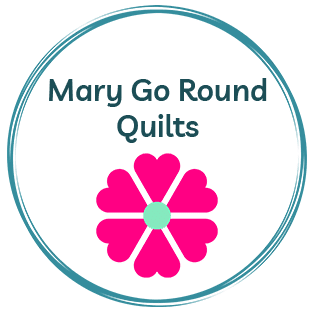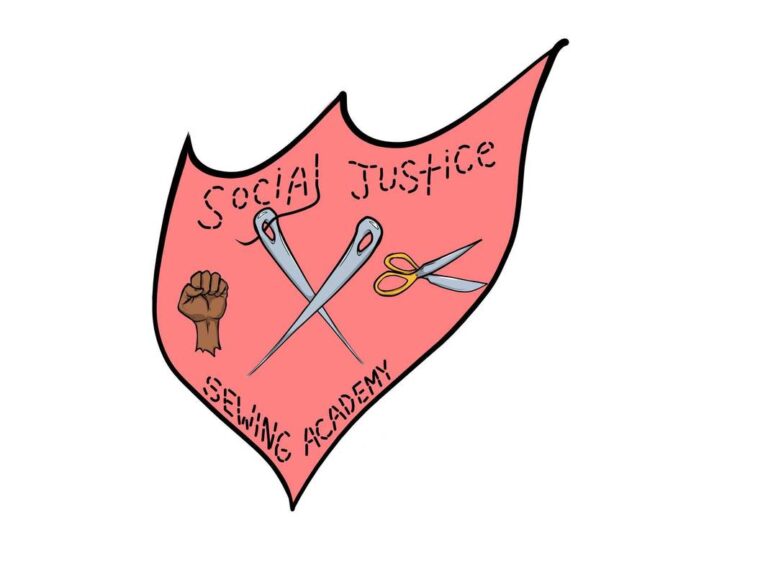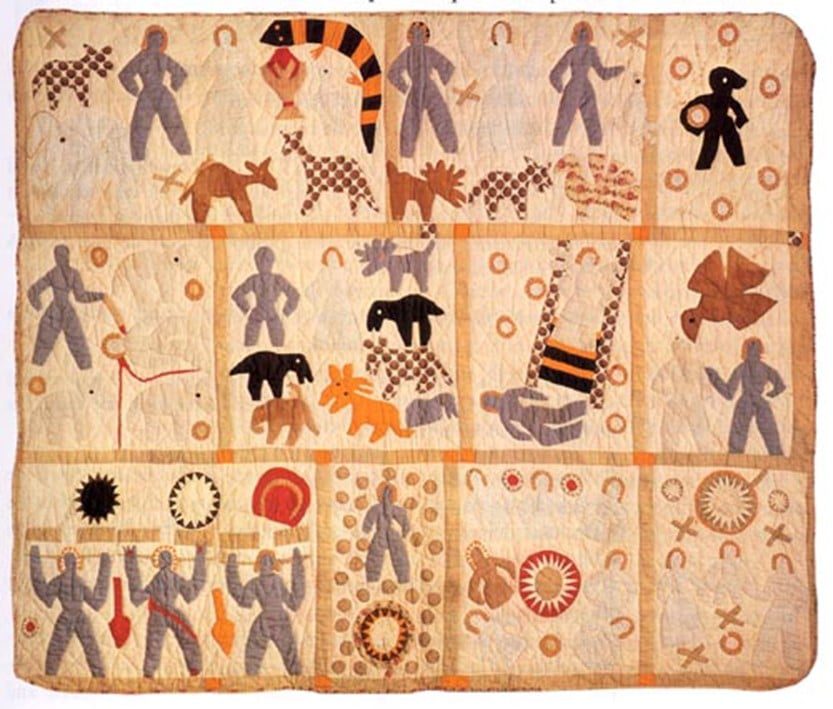Oxford Dictionary
Founded in 2017, the Social Justice Sewing Academy (SJSA) is a youth education program that bridges artistic expression with activism to advocate for social justice.
SJSA offers hands-on workshops in schools, prisons and community centers across the country. SJSA empowers youth to use textile art as a vehicle for personal transformation and community cohesion and become agents of social change. The young artists tell their story using the medium of fabric. Their creations speak to current social issues including gender discrimination, mass incarceration, gun violence and gentrification. The students design and createquilt blocks expressing their passion, pride,concern, anger or sadness regarding socialjustice issues they care about. These blocks carry their voices to the community.
The SJSA works with the students to visualize the messages they want to convey onto their block. Using a raw edge applique technique, the artist begins the process of cutting and shaping pieces of fabric to form their design. Once the student is done, the block is sent to volunteers who embellish and machine embroider the piece according to the artist’s vision for the block. The embroidery keeps the piece in place and further adheres it to the block.
Upon their return to the SJSA, the blocks are sewn together into quilts tops, sandwiched together with batting and backing and finished by their longarm quilter.
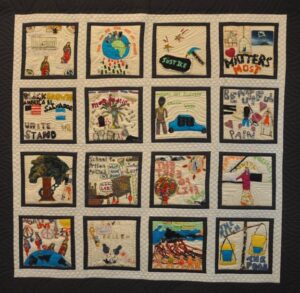
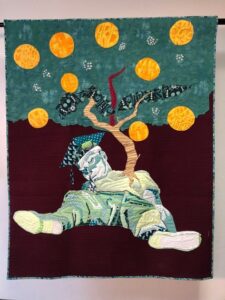
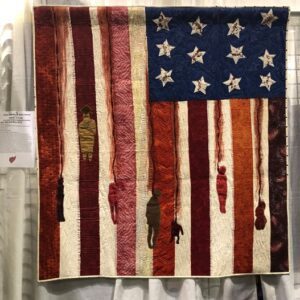
Thefinished quilts can be found in museums, schools, and community spaces where they stimulate community dialogue and bring awareness to the wide variety of social justice issue thatyouth care about.
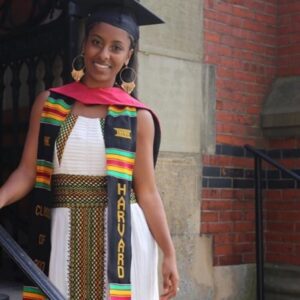
Sara Trail, the founder of SJSA, started the organization to be a platform where youth create art that engages and educates communities. Sara is a Harvard graduate, successful author, sewing teacher and pattern and fabric designer. The murder of Trayvon Martin had a profound impact on Sara. “When I learned that Trayvon was only 14 days older than me, I was shook to the core because he could have been me or any of my friends. His death illuminated how society perpetuates a sense of black unbelonging and authorizes and empowers anyone with white skin to violate black citizenship rights through racial profiling and other intrusive forms of surveillance and policing.” Sara has mixed her passion for quilting with social justice art, to form SJSA. Her Trayvon Martin quilt serves as a reminder that his life was not forgotten
Other programs sponsored by the SJSA:
Block of the Month. SJSA shares a free pattern of a finished block that is inspired by art that youth made in SJSA workshops. At the end of the year, participants can piece these blocks together and make a quilt representing youth inspired SJSA artwork.
The SJSA Business Incubator. A six month virtual program aimed at developing and supporting the next generation ofentrepreneurs
SJSA Quilts of Remembrance: A textile memorial for families who have lost a loved one to violence. These quilts reflect the life of the person by creating a quilt using textiles donated by their family.
SJSA Remembrance Project is a quilt block community art project that will provide activist art banners forlocaland national activist organizations who have requested creative statements to be publicly displayed that represent solidarity as well as remembrance. This partnership will create a visual statement to memorialize those who have been unjustly murdered by community violence. “‹
Currently you can view their exhibition at the University of California, Riverside. Upcoming exhibits in 2021 at the Everhart Museum in Scranton, Pennsylvania as well as Bay Quilts in Richmond, CA.

Rest in Power, Trayvon | Sara Trail, 2012
This article provides a glimpse of what is happening with the Social Justice Sewing Academy. For more information, or to make a donation, please visit their website:
http://www.sjsacademy.com
On Instagram: @sjsacademy
On Facebook: www.facebook.com socialjusticesewingacademy/
Special thanks to Lauren Black for approving this story for use in my blog.
